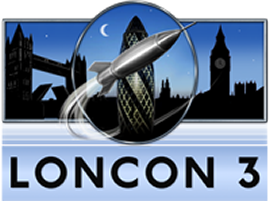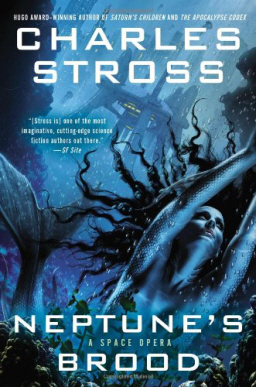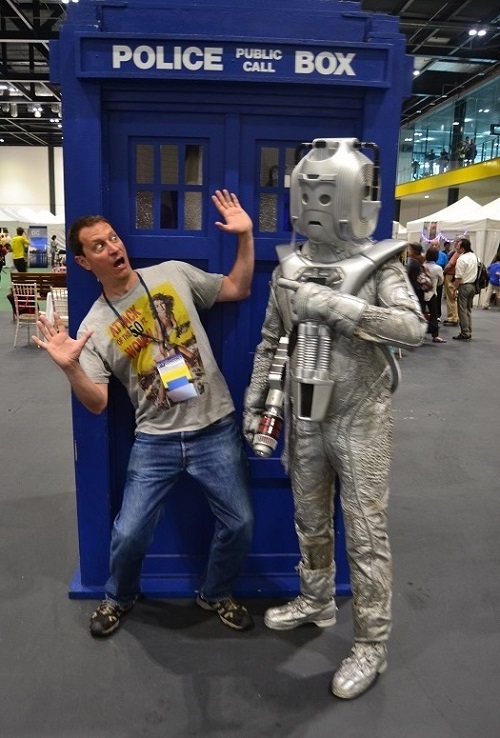LonCon 3 Report: Attending the 72nd World Science Fiction Convention
 Last weekend in London was LonCon 3, this year’s Worldcon. The convention, which has been held in various cities around the world since 1939, is where the Hugo Awards are given out and where fans from all over the globe meet up.
Last weekend in London was LonCon 3, this year’s Worldcon. The convention, which has been held in various cities around the world since 1939, is where the Hugo Awards are given out and where fans from all over the globe meet up.
It was my first Worldcon, and while I’ve been to large conventions before such as World Fantasy and Eastercon, not to mention several local conventions such as Tuscon, I still wasn’t quite sure what to expect. What I got was five fun days of events, conversation, and camaraderie.
The Loncon staff did a fine job making everything run smoothly. A handy pocket guide steered me around the huge convention center without a hitch, and twice-daily newssheets kept me up-to-date on any changes.
There were only a couple of small minuses. First off, the dining options at the ExCel Centre were overpriced and generally substandard. Not that this is unusual for a convention center, so I don’t blame LonCon for this!
Also, the ExCel is huge and has all the ambiance of a shopping mall. But as Robert Silverberg pointed out, “Cons aren’t about venues, they’re about people.”
The Hugo Ballot: Another View
 People will have heard that the Hugo nominations are out. I think the reactions to each ballot always break in two ways: the process and the content.
People will have heard that the Hugo nominations are out. I think the reactions to each ballot always break in two ways: the process and the content.
Lots of people have views on the process of constructing the ballot and the views are so diverse that I couldn’t do justice with a bunch of links here. If you’re interested in that crowd reaction, John O’Neill covered the tip of the iceberg in his post last week.
I suppose my only two cents is to point out that nobody likes 100% of any ballot and that, because they are based on a nomination process of voters who have different tastes and criteria, this is hardly surprising. On the content, I think there’s plenty on this ballot to make a strong showing at the Hugo Awards Ceremony over Labor Day Weekend.
The novels ballot looks interesting. I’ve been told wonderful things about Leckie’s debut novel Ancillary Justice and now I want to read it even more. I love Charles Stross (an honor I share with Nobel in Economics Laureate Klugman), but I have to admit that Neptune’s Brood is neither exciting nor captivating literature so far (although I’m only a third of the way through).
I was discussing Stross with a friend yesterday. He’s got a dizzyingly varied corpus (the Laundry Files novels, “Rogue Farm,” Saturn’s Children and “Lobsters” stake out just a few examples of some of his creative way stations), but my friend and I noted that we sometimes have a harder time with his character work and plotting, much as we might with Perdido Street Station by Mieville. I’ll finish Neptune’s Brood and see what I think.
There are some intriguing entries on the novella ballot, including some Stross, but also Cat Valente and a Brad Torgerson story from Analog. Analog doesn’t seem to get a lot of Hugo attention, and at first, I thought this might be the sign of editorial changes at the magazine.
